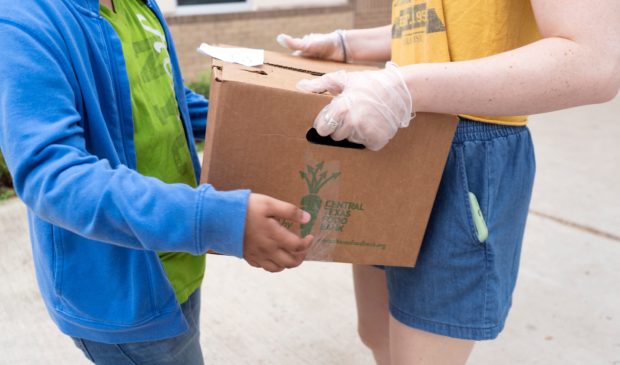City waives permit fees for food charities
Effective immediately, City Council has voted to waive permit fees, fines and other charges for charitable feeding organizations like food banks and soup kitchens that distribute food to vulnerable populations and increase access to healthy foods in the community. The waiver also applies to operational requirements and grease traps for food establishments.
“This would ensure that CFOs won’t be burdened with fees, excessive paperwork or excessive regulations that might keep them from operating,” said Beth Corbett, a spokesperson for Central Texas Food Bank.
The state health department already exempts nonprofit food organizations that distribute food from requiring a permit. The permit fees that were just waived are an Austin Public Health department requirement.
The city defines a charitable feeding organization as a 501(c)(3) food establishment that provides food at no charge. These include food pantries, food banks, soup kitchens, community kitchens and nonprofit food delivery services.
Before the city consented to the fee waivers, most CFOs were regulated in the same manner as commercial food establishments that serve food cooked on the premises. This made it expensive for nonprofits to qualify for the permit; they had to meet the same costly physical requirements of a commercial kitchen, such as self-closing doors, smooth ceiling tiles and grease traps.
“These changes will create a process that has a dual benefit of ensuring public health and safety and also increase community access to the most basic of human needs,” said Lisa Barden, the executive director of Keep Austin Fed.
Stakeholders from the charitable food community and city departments spent several years trying to find sensible solutions that would ensure CFOs can operate safely, Corbett said.
In July 2020, former Mayor Pro Tem Delia Garza and Council Member Kathie Tovo co-sponsored a resolution aimed at protecting food charity resources at a time when the demand for food access was growing due to pandemic-related layoffs. The resolution directed the city manager to convene a working group to develop recommendations. Austin Public Health worked with a number of city departments and the Austin-Travis County Food Policy Board to identify how city regulations, policies and fees could be amended to reduce the barriers to providing healthy food to vulnerable community members.
“The impact of this is going to have long-term positive effects for us because we can just go back to doing the food and security work that we are mission-oriented to provide,” said Aaron DeLaO, director of health initiatives at Foundation Communities.
The city’s Office of Sustainability identifies four CFO categories: The lower three categories, which include groups that distribute shelf-stable food or repack it before distribution, would be exempt from the permit fee, but would still be required to adhere to best practices. The fourth category, which includes community kitchens, will continue to require food establishment permits and compliance with Texas Food Establishment Rules due to risk of foodborne illnesses.
The permit fees range from $359 to $896 per year, depending on the size of the food establishment. The fee waivers will result in unrealized revenue for the General Fund up to an estimated $77,895 per year.
“Certainly, we have been concerned about city finances,” Tovo said. “In this case, the work that Central Texas Food Bank and others are doing is a big service.”
Tovo acknowledged the good work of city staffers and emphasized the need for ongoing food distribution centers during the economic downturn. The fee waivers should allow a greater number of CFOs to conduct safer operations and serve the community.
Corbett said the fee waivers will be a model for other Texas cities to follow and will hopefully become the gold standard should these issues arise elsewhere.
The Austin Monitor’s work is made possible by donations from the community. Though our reporting covers donors from time to time, we are careful to keep business and editorial efforts separate while maintaining transparency. A complete list of donors is available here, and our code of ethics is explained here.
You're a community leader
And we’re honored you look to us for serious, in-depth news. You know a strong community needs local and dedicated watchdog reporting. We’re here for you and that won’t change. Now will you take the powerful next step and support our nonprofit news organization?







